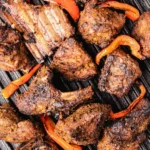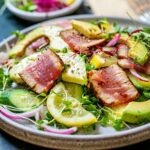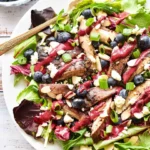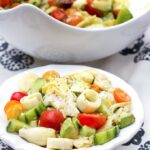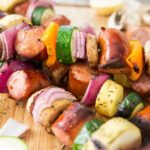Nigerian cuisine is known for its rich flavors, diverse ingredients, and vibrant dishes that tell a story of cultural heritage. From spicy stews to deliciously seasoned rice and hearty soups, the food offers something for every palate.
What makes Nigerian food stand out is its unique blend of spices and cooking techniques that create unforgettable aromas and tastes. Whether you are a seasoned cook or a beginner, exploring Nigerian recipes will add exciting new dimensions to your cooking repertoire.
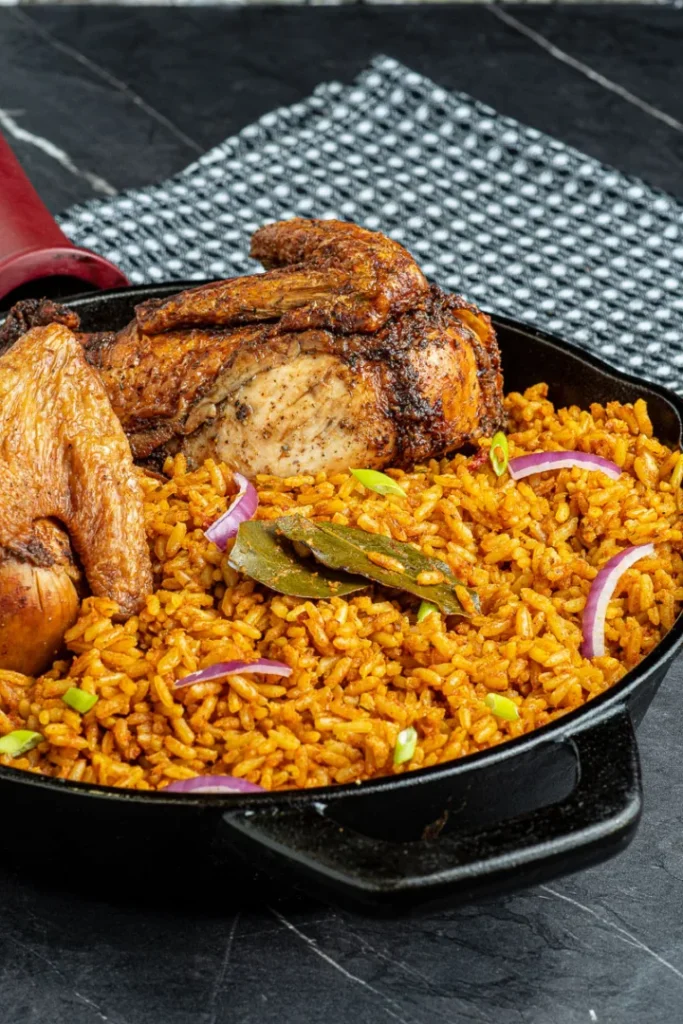
1) Jollof Rice
Jollof Rice is a popular West African dish, especially loved in Nigeria. It features rice cooked in a flavorful tomato-based sauce. You’ll need ingredients like rice, tomatoes, onions, and a variety of spices.
Start by preparing the sauce. Blend tomatoes, red bell peppers, and onions until smooth. Heat oil in a pot and fry diced onions until soft. Add the blended mixture and cook until the water reduces and the sauce thickens.
Season the sauce with thyme, curry powder, bouillon cubes, salt, and pepper. Stir well and let it simmer. Next, add washed, parboiled rice to the pot. Mix everything thoroughly to ensure the rice is well coated with the sauce.
Pour in enough chicken stock or water to cook the rice. Cover the pot and cook on low heat. Stir occasionally to prevent the rice from burning. If needed, add more stock or water.
After about 30 minutes, check the rice. It should be tender and flavorful. Adjust the seasoning if necessary. Once done, serve your Jollof Rice with fried plantains, chicken, or fish.
Enjoy this dish with friends and family, as it’s often a centerpiece in Nigerian celebrations.
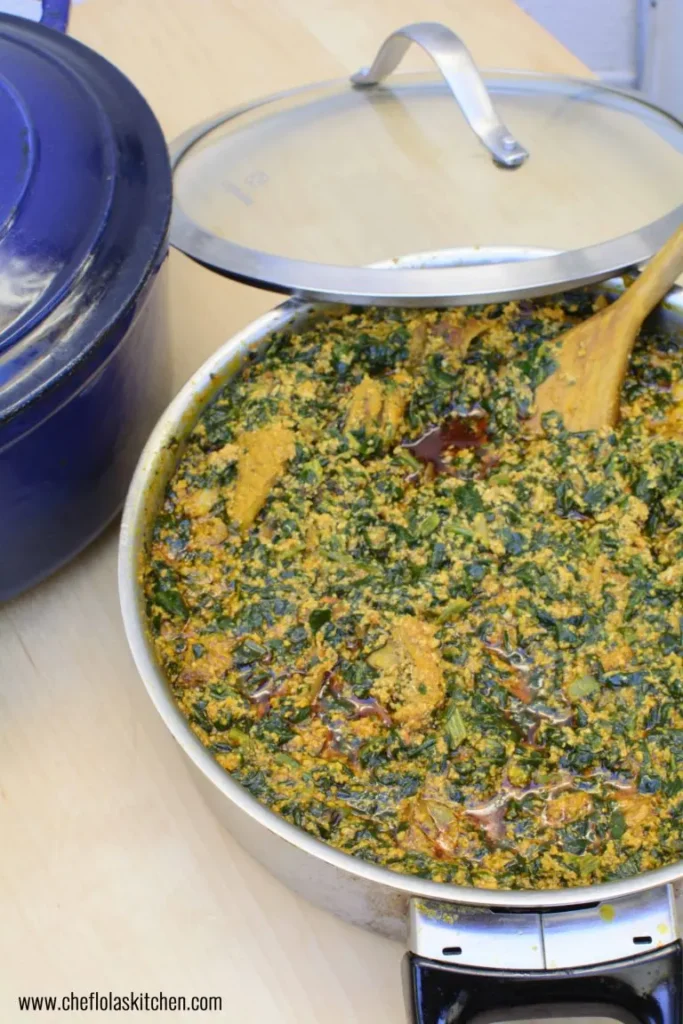
2) Egusi Soup
Egusi Soup is a popular Nigerian dish made with ground melon seeds. It’s rich in flavor and often served with pounded yam or fufu.
Start by washing and preparing the meat. Common choices include beef, goat, and tripe. Cook the meat in a pot until tender. Add seasoning cubes, salt, and onions for extra flavor.
Soak stockfish in hot water to clean it thoroughly. This removes sand and any impurities. Then, set it aside.
In a separate bowl, mix ground egusi seeds with water until you get a thick paste. Heat palm oil in a pot on medium heat. Add the egusi paste carefully, spooning it in small balls if desired.
Allow the egusi to cook until it forms a soft mass. Add meat, fish, and crayfish. Stir gently to combine all the ingredients.
Add chopped vegetables like spinach or bitterleaf towards the end of cooking. Let the soup simmer for another 5 minutes. Stir occasionally to prevent burning.
Egusi Soup is best enjoyed hot and can be paired with various traditional Nigerian sides.
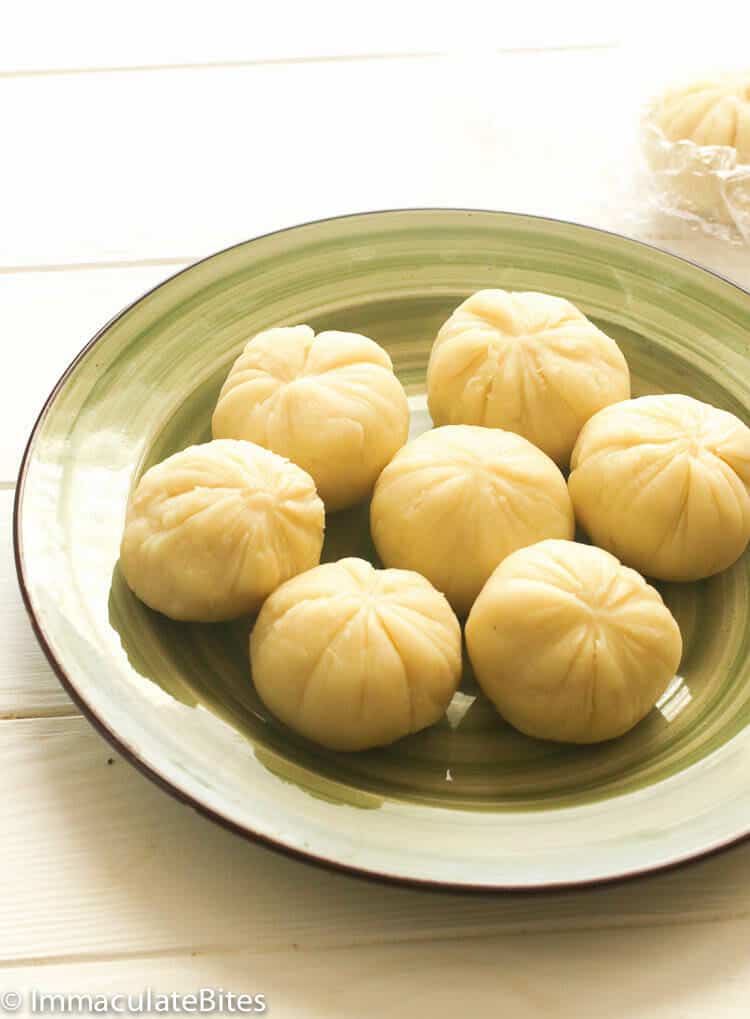
3) Pounded Yam
Pounded Yam is a popular Nigerian dish. It is often eaten with soups like Egusi or Nsala. The traditional method involves pounding boiled yams until smooth and stretchy.
If you prefer a modern method, use a food processor or blender. First, peel and chop the yams. Boil them until they are soft.
Next, transfer the boiled yams into a blender or food processor. Blend until the mixture is smooth and dough-like. You might need to add a bit of the cooking water to get the right texture.
Serve your Pounded Yam with your favorite Nigerian soup. Enjoy this tasty, stretchy, and satisfying dish!
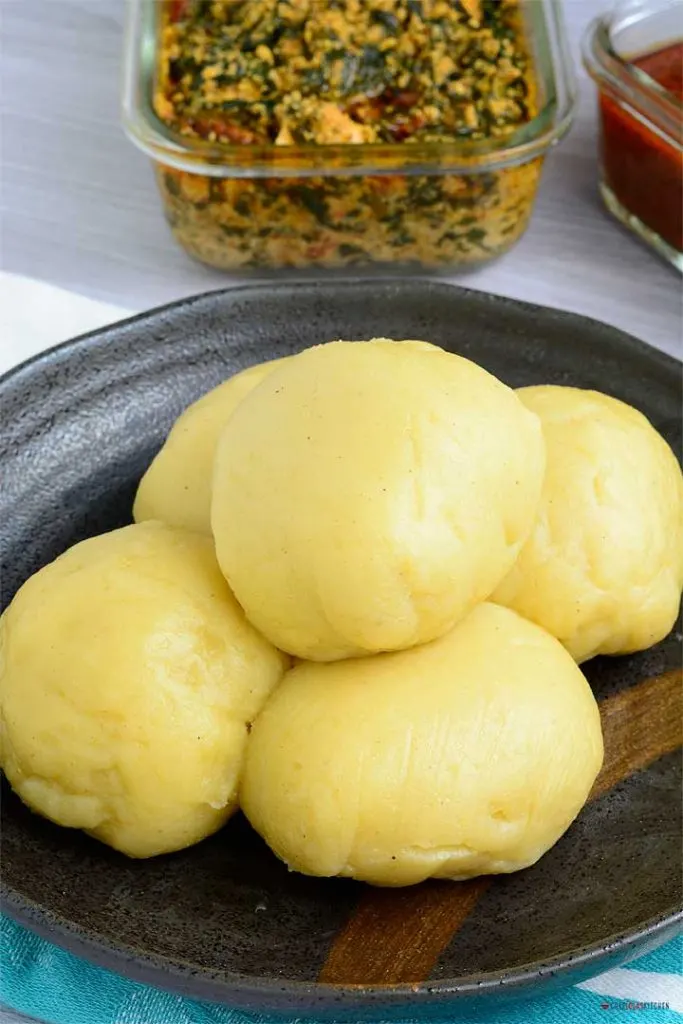
4) Fufu
Fufu is a staple food in Nigerian cuisine. It’s made from starchy ingredients like cassava, yams, or plantains. These ingredients are boiled, mashed, and formed into a smooth, dough-like consistency.
To make fufu, start by peeling and cutting your chosen ingredient like cassava or plantains. Boil them until they are soft. After boiling, drain the water and mash the vegetables until smooth.
You can use a wooden spoon or a traditional fufu pounding stick for mashing. This step requires patience and strength. Aim for a stretchy and elastic texture. Sometimes, you may need to add a bit of warm water to achieve the right consistency.
Once smooth, divide the fufu into individual portions. Wrap each portion in plastic wrap to keep it fresh. Fufu is typically tasteless on its own, so it is often paired with rich soups or stews.
To eat fufu, take a small portion, roll it into a ball with your fingers, and dip it into the sauce. Then, swallow without chewing. This method of eating is traditional and enhances the experience of enjoying fufu with various Nigerian soups.
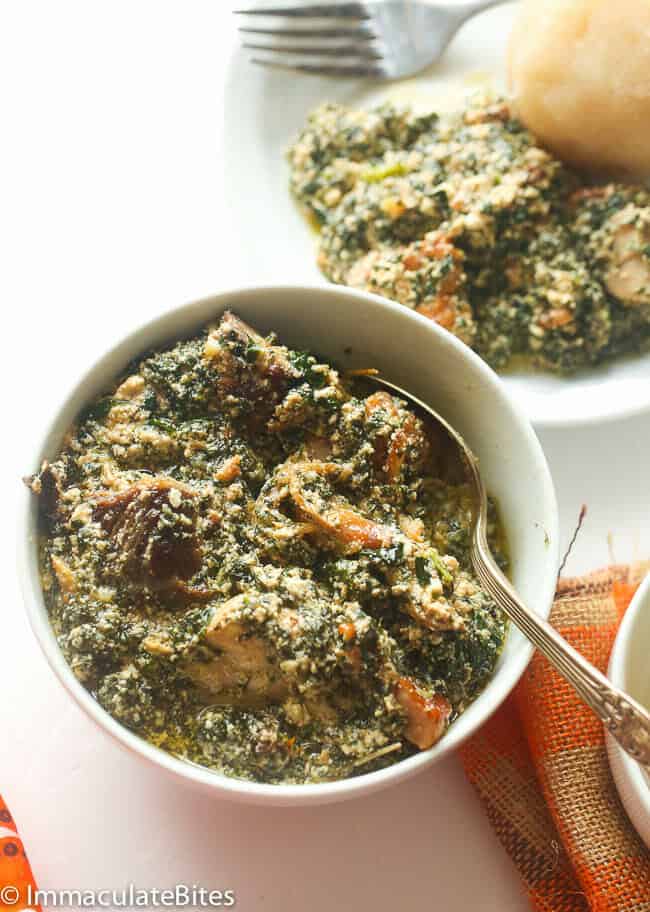
5) Bitterleaf Soup
Bitterleaf soup, also known as Ofe Onugbu, is a popular Nigerian dish. It is rich in flavor and packed with nutrients.
You start by washing beef, shaki, and other meats. Add them to a pot and cook until tender. Once the meat is done, add 3 cubes of Maggi or Knorr seasoning and cook for another 5 minutes.
Next, add hot-water-washed dry fish and stockfish to the pot. Pour in some water and cook until the fish is tender. Then add palm oil, ground crayfish, and pepper for added flavor.
Ensure your bitter leaves are well washed to remove the bitterness. Add these to the pot, along with small lumps of cocoyam paste. Let everything simmer for 10 more minutes.
Season the soup with additional cubes if necessary. Stir well and let it cook for a little longer. Adjust the seasoning to your taste, making sure all ingredients are well combined. Your bitterleaf soup should now be ready to serve.
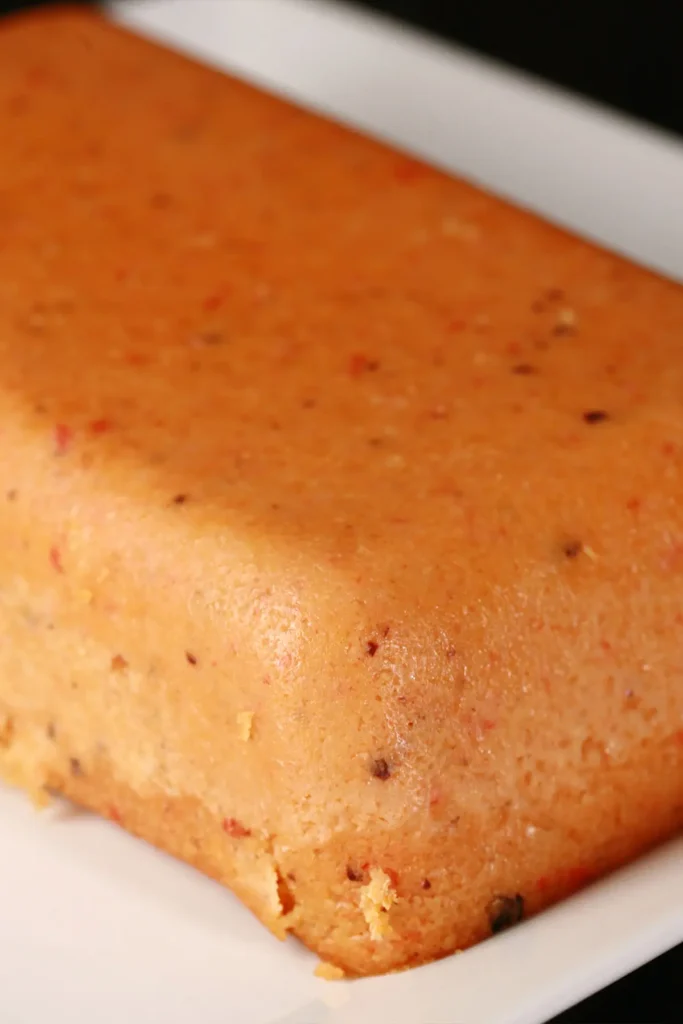
6) Moi Moi
Moi Moi is a popular Nigerian dish made from beans. It is often served as a side or main dish.
To start, soak beans for about 10 to 15 minutes. This will make it easier to remove the skin. Once soaked, pour the beans into a food processor and pulse a few times to peel the skin. Rinse the beans until the skin floats away.
Next, you blend the peeled beans with water to get a smooth paste. Add chopped onions, bell peppers, habanero peppers, and any seasoning you like. Blend everything together until smooth.
Pour the mixture into containers. You can use ramekins or foil wrappers. If steaming, place the containers into a pot with water and steam for about 30 minutes. You can also bake them in an oven preheated to 350°F (180°C).
Moi Moi can be enjoyed hot or cold. It is great as a snack or part of a larger meal. Now, you’re ready to try making this delicious Nigerian bean pudding. Enjoy!
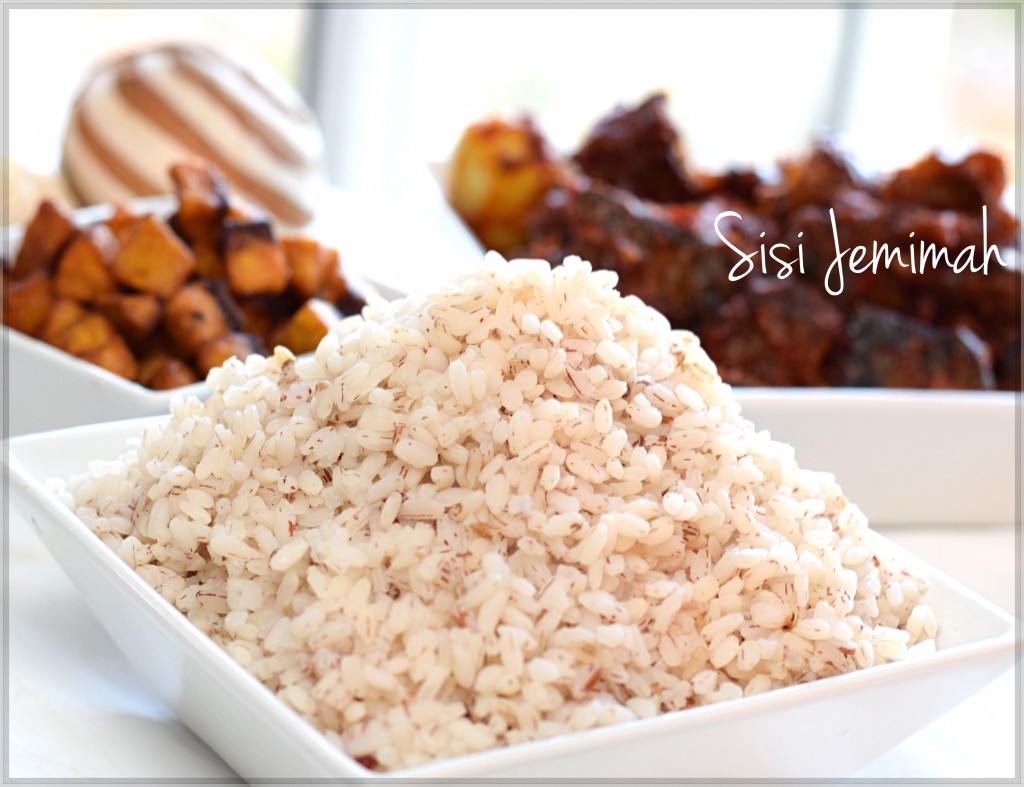
7) Ofada Rice
Ofada rice is a popular Nigerian dish known for its unique aroma and flavor. It is often served with a rich, spicy sauce called Ofada stew.
Start by picking out stones and dirt from the rice. Ofada rice can be quite dirty, so this step is important. Next, wash the rice thoroughly until the water runs clear.
After washing, you may choose to soak the rice in cold water for about 30 minutes. This helps soften the rice and can reduce cooking time.
To cook, bring a pot of water to a boil and add the soaked rice. Reduce the heat to low and let it simmer for 20-25 minutes until the rice is tender and the water is absorbed.
Some prefer to parboil the rice first. Parboiling involves partially boiling the rice before fully cooking it, and it can help reduce the final cooking time to around 40-50 minutes.
Ofada rice pairs wonderfully with a variety of sauces, but it is traditionally served with a spicy, flavorful Ofada stew made from a mix of green peppers, onions, dried fish, shrimp, and local seasonings.
In just a few steps, you can enjoy this delicious Nigerian delicacy in your home. The unique taste and texture of Ofada rice make it a standout dish in Nigerian cuisine.
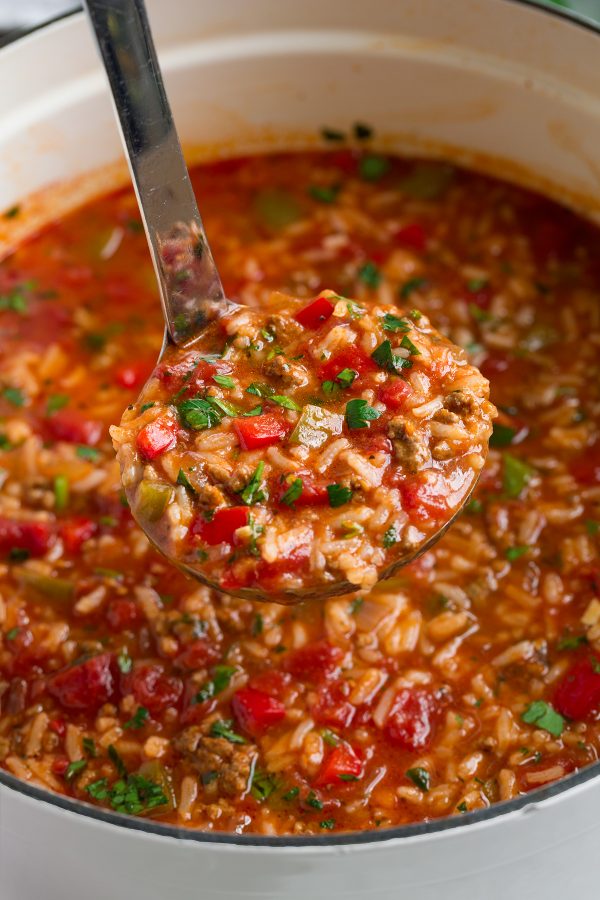
8) Pepper Soup
Pepper Soup is a popular Nigerian dish known for being spicy and flavorful. It is often made with chicken, goat meat, beef, or seafood. The soup is packed with spices and herbs, creating a delicious and aromatic meal.
To start, wash and prepare your choice of meat. Cut it into bite-sized pieces. Place the meat in a pot and cover it with water. Add diced onions, crushed garlic, and seasoning cubes.
Next, include pepper soup spices like calabash nutmeg, alligator pepper, and African pepper. If you cannot find these, substitute with a mix of black pepper, ground coriander, ginger, and chili flakes.
Cook the meat on medium-high heat until tender. This usually takes about 30-50 minutes. Check the soup periodically and add more water if needed to keep the meat covered.
Once the meat is tender, add chopped habanero peppers or red chili flakes for an extra kick. Simmer for another 10-15 minutes to meld the flavors together.
Pepper Soup can be served with rice, boiled plantains, or eaten on its own. It’s perfect for warming up on a cold day or as a comforting meal when you are feeling under the weather. Enjoy the rich, spicy taste of this traditional Nigerian dish.
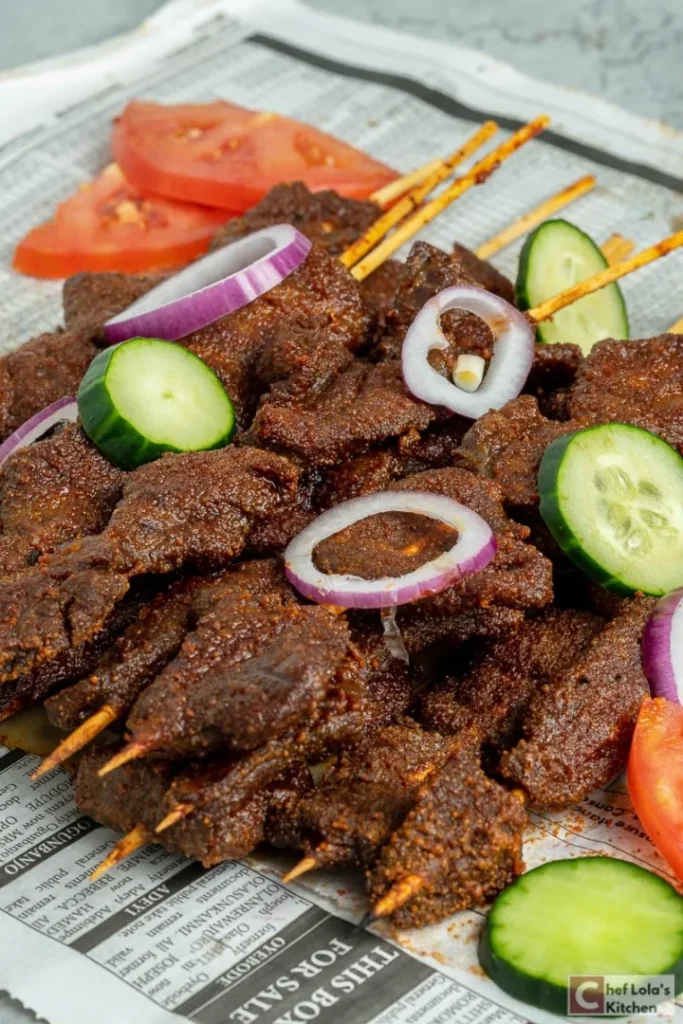
9) Suya
Suya is a popular Nigerian street food that you will love. It is a spiced grilled meat, often made with beef. The meat is marinated with a unique blend of spices called yaji.
To make suya, you thread pieces of beef onto skewers. Marinate the beef for at least an hour. The marinade includes ground peanuts, cayenne pepper, paprika, ginger, and garlic powder.
You can cook suya on a grill. Preheat the grill to medium-high and lightly oil the grate. Place the skewers on the grill, turning them occasionally. The beef should be charred on both sides and cooked through in about 8-10 minutes.
For an oven option, preheat to 300°F. Place the skewers on an oven rack and roast for about 15-20 minutes, flipping halfway through.
After cooking, remove the beef from the skewers. Serve with fresh tomatoes, onions, and cucumbers for a traditional touch.
Suya is a flavorful and spicy treat that is easy to make. Its unique taste comes from the special yaji spice mix, which makes it stand out in Nigerian cuisine. Enjoy making and eating this delicious dish!

10) Akara
Akara, also known as bean cakes or bean fritters, is a popular Nigerian breakfast dish. It is made from black-eyed peas, onions, and spices.
First, you need to remove the skins from the black-eyed peas. Soak the beans, then pulse them in a food processor to help with skin removal. Rinse them until clean.
Next, blend the beans with minimal water until a smooth paste forms. Add finely chopped onions and hot peppers for flavor. Salt can also be added to taste.
Heat oil in a deep pan to about 350°F (175°C). Scoop tablespoon-sized portions of the bean paste into the hot oil. Be careful not to overcrowd the pan.
Fry the Akara in batches until golden brown on the outside. This usually takes about 5-7 minutes per batch. Use a slotted spoon to remove the fritters and place them on a plate lined with paper towels to drain excess oil.
Akara is best enjoyed with bread or pap (a cornmeal porridge). You can also eat it on its own as a tasty snack.
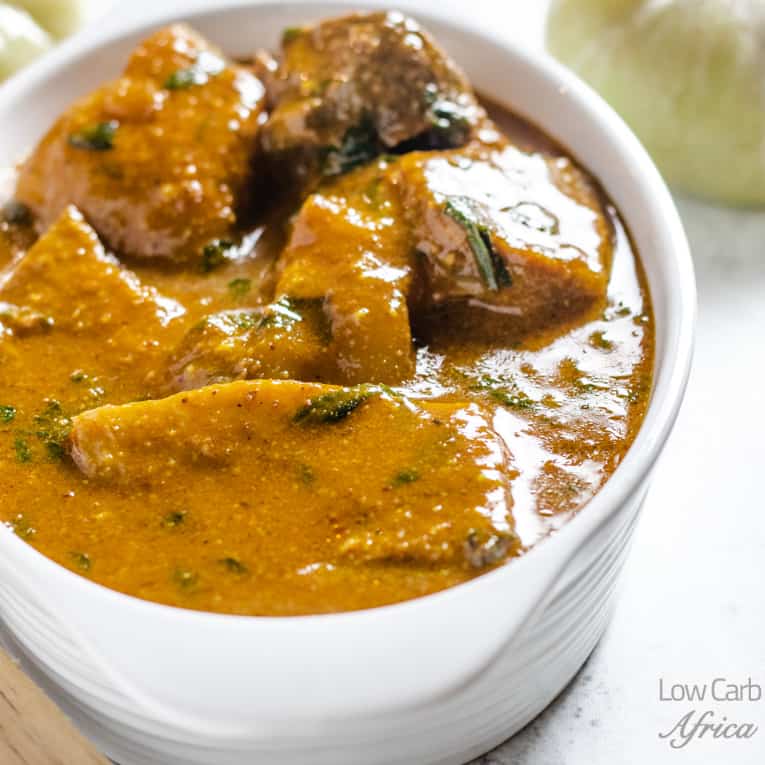
11) Ogbono Soup
Ogbono Soup, also called Apon, is a popular Nigerian dish. This soup is thick and hearty, made from ground Ogbono seeds. The seeds give the soup a unique slimy texture, which is perfect for dipping.
To start, you will need ground Ogbono seeds. These seeds can be ground using a dry mill. Next, soak some dry catfish in water until soft, then clean and debone it.
Cook your preferred meat, such as beef or goat meat. Season with salt, stock cubes, and diced onions. Add water and let it boil until the meat is tender.
Add the ground Ogbono seeds to the pot, stirring constantly to avoid lumps. Slowly add the stock from the cooked meats, continuing to stir. This step is crucial for achieving the right consistency.
Add vegetables like bitter leaves or pumpkin leaves. Stir them into the soup and cook for a little longer. You can add extra seasonings such as pepper and additional salt to taste.
Make sure the soup simmers well and stir it every few minutes. This helps to prevent the soup from burning and keeps it smooth.
Serve the Ogbono Soup hot with pounded yam, fufu, or eba. This dish is not only delicious but also packed with flavors and nutrients. Enjoy your meal!
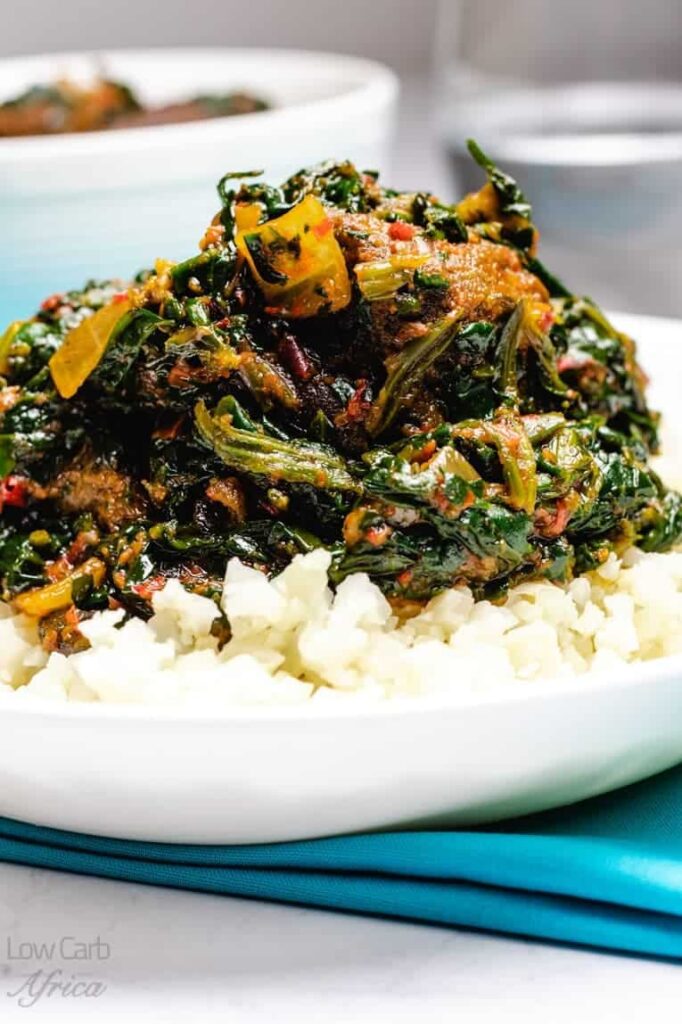
12) Efo Riro
Efo Riro is a traditional Nigerian spinach stew from the Yoruba people. It’s flavorful and rich, made with leafy greens like spinach or amaranth.
Start by blending scotch bonnets, red bell pepper, onion, and tomatoes. Heat palm oil in a large saucepan and add iru (fermented locust beans). Pour in the blended mixture and bring it to a boil.
After boiling, fry the mixture until it thickens. This takes about 15 minutes. Stir constantly to avoid burning. Add locust beans and crayfish and mix well.
Next, add cooked meat and fish to the stew. You can use assorted meats like beef, goat, or tripe. Add bouillon cubes and salt for extra flavor.
Finally, add the spinach. Stir it in and let it cook just until it wilts. Serve Efo Riro with rice, plantains, or fufu for a complete meal.
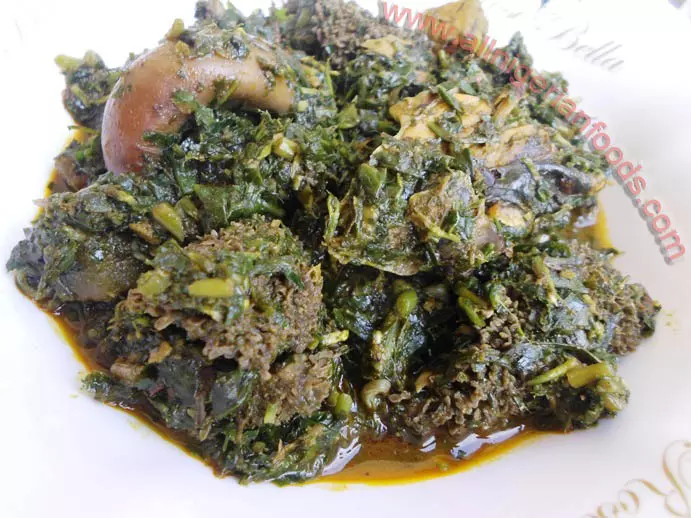
13) Afang Soup
Afang Soup is a beloved Nigerian dish known for its rich flavors and nutritious ingredients.
To start, you will need beef, Kanda (cow skin), and onions. Begin by boiling the beef and Kanda with diced onions and stock cubes in a small amount of water. Ensure the meat is tender.
Next, clean and prepare your dry fish. Add the prepared fish, palm oil, crayfish, and pepper to the pot. Allow it to cook for an additional 5-10 minutes.
The key ingredients for this soup are Afang (okazi) leaves and water leaves. Add them to the pot along with periwinkle if desired. Cook until the okazi leaves soften.
Afang Soup is best served hot and pairs well with various Nigerian staples like pounded yam, fufu, or rice.
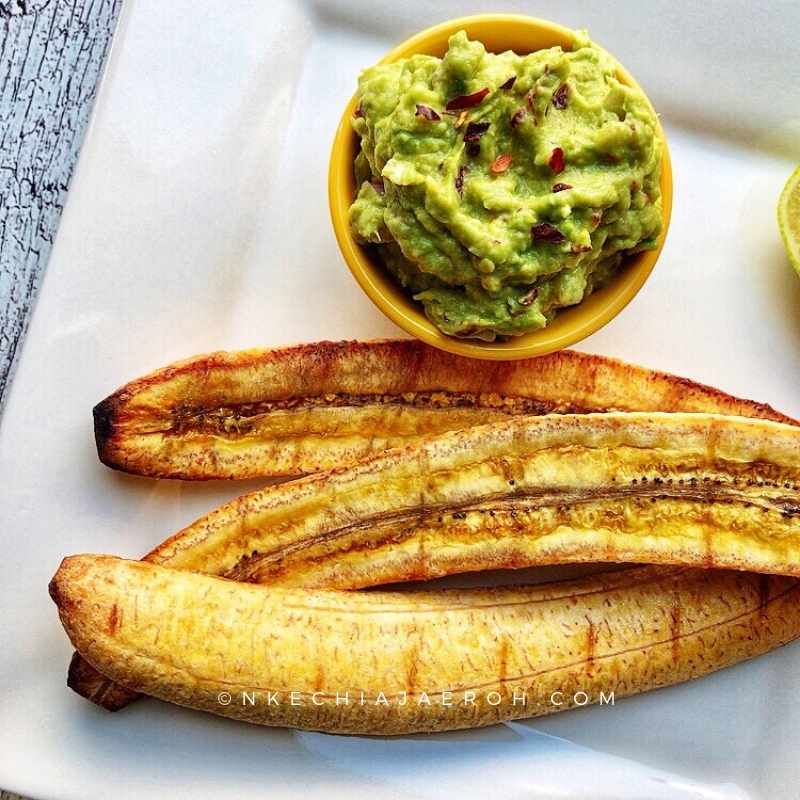
14) Boli
Boli is a popular Nigerian street food made from roasted plantains. It’s simple to prepare and has a delicious smoky flavor.
To make Boli, choose either ripe or unripe plantains. Ripe plantains give a sweeter taste, while unripe ones are less sweet and firmer. Start by washing and peeling the plantains.
If you’re using an oven, preheat it to about 170°C. Rub a little salt on the peeled plantains. Place them on a wire rack and put them in the oven. Turn the plantains occasionally to ensure they roast evenly on all sides.
You can also use a barbecue grill if you prefer. Simply set up your barbecue to medium heat. Place the plantains directly on the grill. Rotate them often to avoid burning and to ensure even roasting.
Boli is best enjoyed with pepper sauce or any spicy dip of your choice. For an extra treat, serve it with roasted fish or meat. This combination makes for a filling and flavorful meal.
This Nigerian classic is not just tasty but also nutritious. It’s rich in fiber, vitamins, and minerals. Enjoy making and eating Boli, a delightful part of Nigerian cuisine!
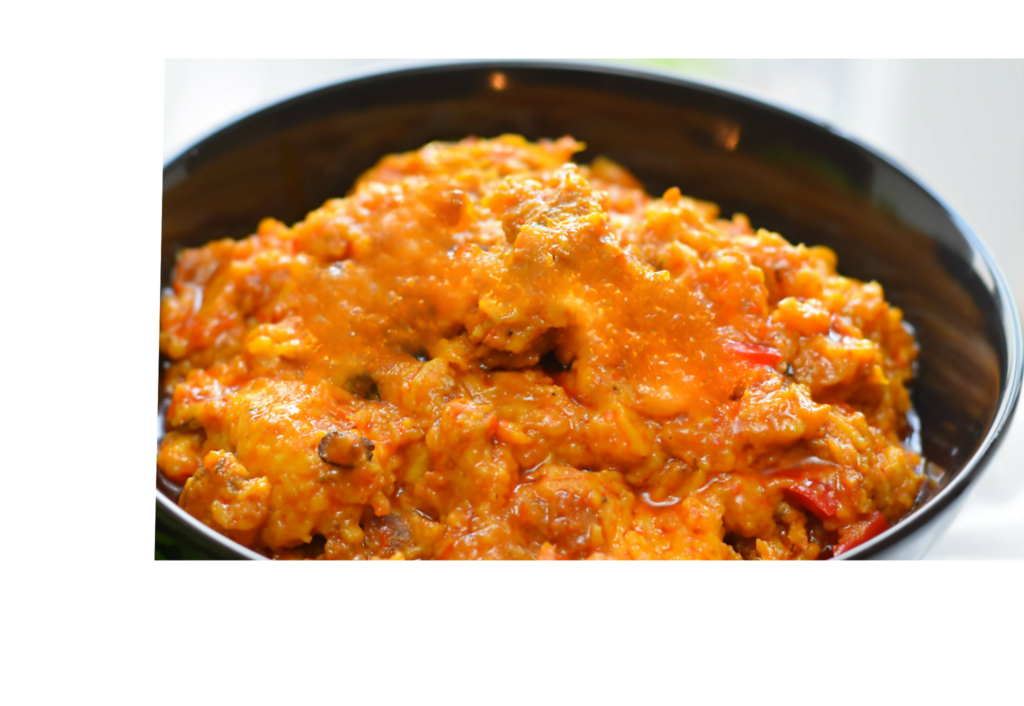
15) Ikokore
Ikokore is a traditional Nigerian dish, particularly popular among the Ijebu people. This savory dish combines water yam and a variety of meats and fish.
Start by peeling, washing, and grating the water yam. Add a bit of salt and mix well. You will also need to prepare some meat and fish. Common choices include beef, smoked fish, and prawns.
Season and cook the meat with onions, pepper, salt, and beef seasoning. Once the meat is cooked, add the smoked fish and prawns. Let them cook together for a few minutes.
Next, scoop the grated water yam into the pot, both in big and small lumps. The small lumps will dissolve, creating a smooth consistency. The bigger lumps will remain, giving the Ikokore its unique texture.
Reduce the heat and let the Ikokore cook for 15 to 20 minutes. This allows the flavors to meld and the yam to become soft and tender. Stir occasionally to ensure even cooking.
Your Ikokore is now ready to serve. Enjoy it as is or pair it with your favorite side dish for a complete meal. The rich flavors and unique texture make it a favorite among those who love traditional Nigerian cuisine.
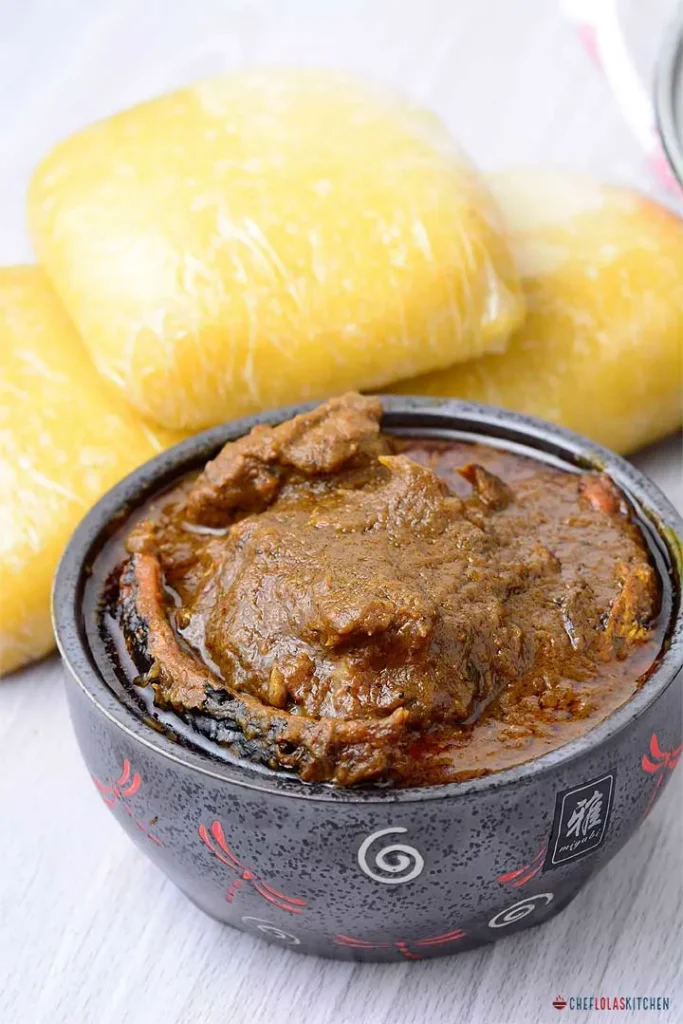
16) Banga Soup
Banga Soup is a traditional Nigerian dish from the Niger Delta region. It’s made from palm nuts, giving it a rich and unique flavor.
To prepare Banga Soup, you start by cooking beef and dried fish with diced onions and stock cubes until they are done. This forms the base of your soup.
Next, you’ll need palm nut concentrate. Pour the palm nut concentrate into the pot, adding water and leftover stock from the meat. Allow it to cook until the oil begins to float on top of the soup.
Add cleaned dried fish, ground crayfish, and spices like ataiko and irugege. Stir well and let the mixture boil for about 15 minutes with the pot half-covered. This helps to thicken the soup.
Finally, add seasoning such as Banga spice, a seasoning cube, and salt. You can include scent leaves or pumpkin leaves for added aroma and taste.
Serve your Banga Soup hot with rice, fufu, or any preferred side dish. This hearty soup is perfect for a comforting meal.
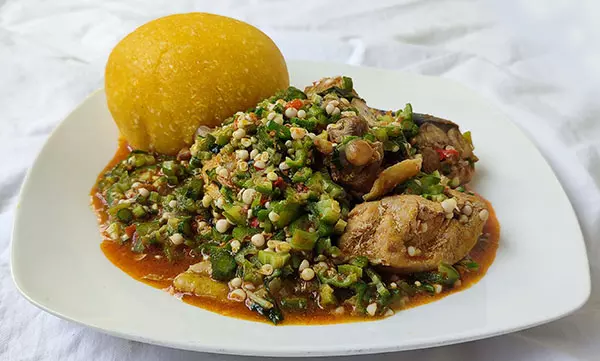
17) Okra Soup
Okra soup is a popular dish in Nigeria. It’s hearty, flavorful, and often enjoyed with fufu or pounded yam. The main ingredient is okra, which gives the soup a slightly slippery texture.
To make it, you start with fresh okra, chopped or blended. You will also need palm oil, which adds a rich, red color and unique flavor to the soup.
Next, add your choice of meats. Common options include chicken, beef, or fish. These are usually pre-cooked to speed up the cooking process.
Cook the meats in water or stock with some onions and blended bell peppers. This forms a tasty base for the soup.
Add seasonings to the pot. Crayfish, ground pepper, and salt are typical ingredients. You may also use bouillon cubes and ground locust beans (iru) to enhance the taste.
Once the broth is well-seasoned, add the palm oil and let it boil for a few minutes. Then, add the finely chopped or blended okra to the pot.
Stir the okra into the soup. Allow it to cook for about 5-10 minutes. You do not want the okra to become too soft, so keep an eye on it.
Finally, add any cooked fish or additional meats to the pot. Let the soup simmer for a couple more minutes to absorb all the flavors.
Serve your okra soup hot, alongside your favorite swallow. Enjoy!
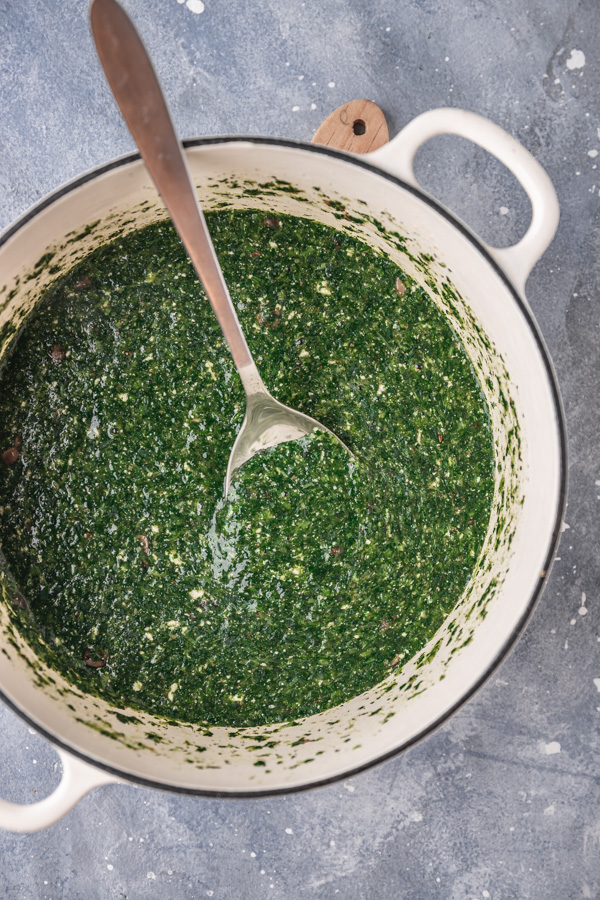
18) Ewedu Soup
Ewedu Soup is a traditional dish from the Yoruba tribe in Nigeria. It is made from jute leaves, known as “ewedu” in Yoruba. The soup is often paired with foods like pounded yam, fufu, or amala.
To prepare Ewedu Soup, start by washing the jute leaves thoroughly. You then cook the leaves in boiling water for about 5-10 minutes until they become tender.
After cooking, blend the leaves to a smooth consistency. You can use a blender or a traditional cooking broom called “ijabe” to mash the leaves.
Next, pour the blended ewedu back into the pot. Add locust beans, crayfish, salt, and a stock cube. Stir well and let it simmer for a few minutes.
The soup is ready when it has a slightly thick consistency. Serve it hot with your preferred accompaniment. This flavorful and nutritious dish is a staple in many Nigerian households and is loved by many for its simplicity and taste.
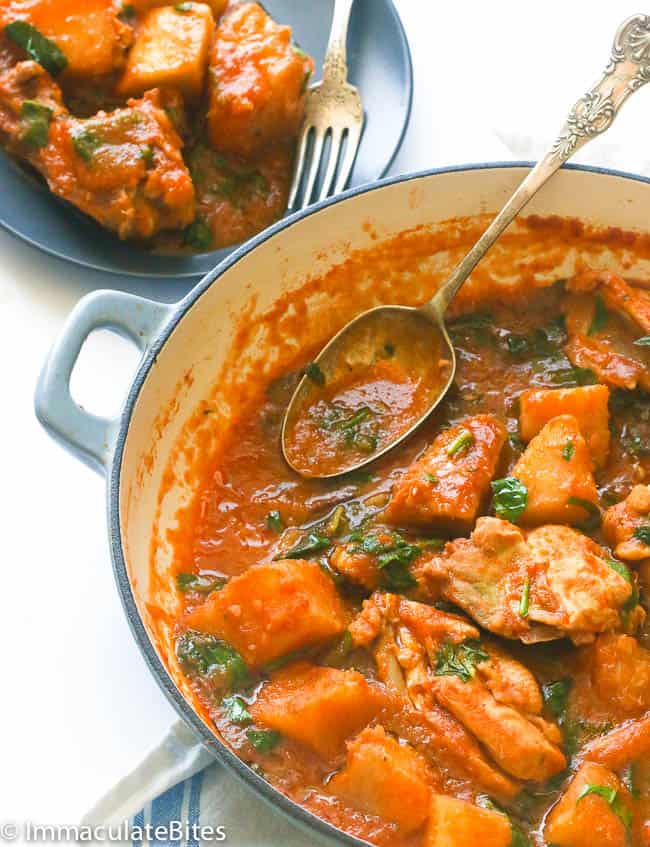
19) Yam Porridge
Yam Porridge, also known as Asaro, is a popular Nigerian dish made with yams and various spices. It’s a comforting and hearty meal.
To start, peel and chop the yams into chunks. Blend red bell peppers, habanero peppers, tomatoes, and onions. This forms the base for your porridge.
In a pot, add the yams and the blended pepper mix. Add in salt, bouillon powder, and enough water to cover the yams. Cook on medium-high heat for about 10 minutes.
Next, add palm oil, chopped onions, and ground crayfish. Stir everything together and continue cooking until the yams become soft and the mixture thickens.
Towards the end, you can add smoked fish or boiled fish, depending on your preference. For added flavor, some people include bay leaves or fresh vegetables.
Let the mixture simmer for a few more minutes, allowing all the flavors to meld together. Serve your yam porridge hot, and enjoy this delicious Nigerian meal!

20) Gbegiri Soup
Gbegiri Soup is a flavorful Nigerian soup made from beans. You start by soaking the beans, typically black-eyed peas, to soften them. Peel the beans by rubbing them between your palms and rinsing under cold water.
Cook the peeled beans with water and onions until they are very soft. This usually takes about an hour. An instant pot can reduce the cooking time to around 25 minutes.
Once the beans are soft, blend them to achieve a smooth texture. Add some oil to a pan and sauté onions until translucent. Add spices like Scotch bonnet pepper, garlic, ginger, and crayfish. Let them cook until fragrant.
Combine the blended beans with the sautéed mixture. Add assorted beef, cayenne pepper, and seasoning. Let it simmer for about 10 minutes. Ensure the soup is not too thick; add water if needed, but be mindful not to overdo it.
Serve Gbegiri Soup with Ewedu Soup and amala or pounded yam. Enjoy the rich, creamy taste that makes Gbegiri Soup a favorite in many Nigerian households.
Nutritional Benefits of Nigerian Food
Nigerian food provides numerous health benefits, including being rich in protein, high in fiber, and abundant in vitamins and minerals.
Rich in Protein
Many Nigerian dishes are high in protein. Peppered goat meat, also known as Asun, is a popular choice. Goat meat contains no carbs and is a leaner option compared to beef or pork. Eggs and grilled fish are other excellent protein sources. Beans and okpa (a dish made from Bambara nuts) are legume-based meals that provide plant-based protein, making them great for muscle repair and growth.
High in Fiber
Foods like beans, unripe plantains, and moimoi are high in fiber. Fiber is essential for good digestion and can help you feel full longer, aiding in weight management. Okra soup is another good source of fiber. High-fiber foods can help regulate your digestive system, lower cholesterol levels, and control blood sugar levels. Including these dishes in your diet can contribute to improved overall health.
Abundance of Vitamins and Minerals
Nigerian cuisine is packed with essential vitamins and minerals. Palm oil and red palm fruit are rich in Vitamin A and E. Bananas provide potassium, which helps in maintaining proper heart and muscle function. Coconut oil is loaded with healthy fats that can provide you with a quick energy boost. Vegetable-based dishes, such as okra soup and pepper soup, offer a range of nutrients, making them beneficial for maintaining good health.
Cooking Techniques Unique to Nigerian Cuisine
Nigerian cuisine uses specific cooking techniques that bring out unique flavors and textures in traditional dishes. By learning these methods, you can better appreciate and replicate the rich culinary heritage of Nigeria.
Stir-Frying
In Nigerian cooking, stir-frying is a frequent method used for making savory dishes. This technique ensures that the vegetables and proteins are quickly cooked with minimal oil, retaining their natural flavors and nutrients.
Commonly used ingredients include bell peppers, onions, tomatoes, and proteins such as chicken or shrimp. Stir-frying is often done in a wok or a large pan over medium-high to high heat.
The key to successful stir-frying in Nigerian cuisine is to keep the ingredients moving in the pan. This prevents burning and ensures even cooking. Some stir-fry dishes might also include spices like curry powder or chili, adding a punch of flavor to your meal.
Stewing
Stewing is crucial in Nigerian cuisine for dishes like Egusi soup, Ofe Akwu, and Beef Stew. This technique involves simmering ingredients like meats, vegetables, and spices in a liquid for an extended period.
Stews are typically rich and flavorful, usually combining a blend of tomatoes, onions, and various seasonings. Palm oil is a common base, imparting a distinct taste and color to the stew.
One important aspect of Nigerian stewing is the use of thickening agents. For example, ground melon seeds (egusi) or ground peanuts can thicken the soup and add depth to the flavor. The slow simmering process allows the ingredients to meld together, creating a hearty and satisfying dish.
Grilling
Grilling is a popular cooking method for meats in Nigeria, especially for street foods like Suya and Chicken Chops. This technique involves cooking food directly over an open flame or on a grill, imparting a smoky flavor.
Nigerian grilling often includes marinating the meat in a mix of spices and herbs. Common marinade ingredients include ground peanuts, garlic, ginger, and chili. The meat is then skewered and grilled until it’s tender and flavorful.
This method is especially popular for beef and chicken, but you might also see fish and occasionally goat meat. The grilled meats are typically served with accompaniments like sliced onions, tomatoes, and spicy sauces, enhancing the overall flavor experience.
Understanding Ingredients in Nigerian Recipes
Nigerian cuisine uses a variety of ingredients that contribute to its bold and flavorful dishes. You’ll find staple ingredients, spices, and specialty items that are essential in creating authentic Nigerian meals.
Staple Ingredients
Staple ingredients are the backbone of Nigerian cooking. Yam is one of the most important, often boiled, pounded, or fried. Rice is another key staple, used in popular dishes like Jollof rice and Fried rice.
You will also frequently find beans, particularly black-eyed peas, in several dishes. Plantains are commonly fried or boiled and served alongside meals. Cassava, used to make garri and fufu, is another crucial staple. Maize (corn) is widely used in stews and porridges. These staples provide the base for many traditional dishes.
Spices and Seasonings
Nigerian food is rich with various spices and seasonings that enhance its flavors. Pepper is indispensable; the fiery heat of scotch bonnets is common. Thyme, curry powder, and nutmeg are also widely used.
Bouillon cubes add depth to broths and soups. Ginger and garlic bring aromatic nuances, while locust beans (iru) deliver a unique, fermented flavor. Common herbs like parsley, scent leaf, and basil are often used fresh. These spices and seasonings create the complex and dynamic flavors typical of Nigerian cuisine.
Specialty Ingredients
Some ingredients are unique to Nigerian recipes and are less common in other cuisines. Egusi seeds, used in making egusi soup, provide a distinct texture and flavor. Ogbono seeds, used in ogbono soup, lend a thick, stretchy consistency.
Ugu (pumpkin leaves) are commonly cooked in soups and stews. Stockfish and dried crayfish add a rich, deep-sea taste to many dishes. Red palm oil gives a vibrant color and distinctive flavor to the food. Bitter leaf is often used in soups for a slightly bitter taste. These specialty ingredients are key to achieving authentic Nigerian flavors.
